“The culture of encounter builds bridges and opens windows to sacred values and principles”
The Pope meets representatives of Humanistic Buddhism in Taiwan
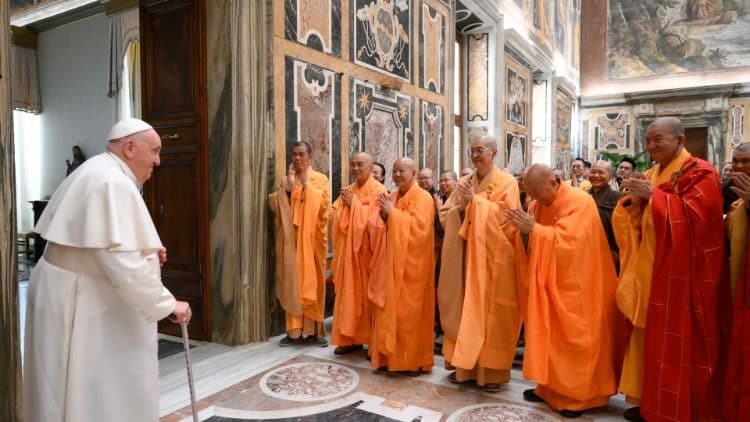
This morning, in the Vatican Apostolic Palace, Holy Father Francis received in Audience the Delegation of the United Association of Humanistic Buddhism (Taiwan) and gave them the following speech:
Address of the Holy Father
Most Venerable Abbot, dear Brothers and Sisters!
I am pleased to welcome you, who represent Humanistic Buddhism in Taiwan, and the delegate of the Catholic Church.
Your presence today bears witness to the spirit of friendship and cooperation that you cultivate as believers, firmly grounded in your respective religious journeys. Our meeting takes place shortly after the death of Venerable Master Hsing Yun, the founding patriarch of Fo Guang Shan Monastery. World-renowned for his contribution to Humanistic Buddhism, he was also a master of interreligious hospitality.
Your visit, which you have termed an educational pilgrimage, represents a privileged occasion for advancing the culture of encounter, in which we take the risk of opening ourselves to others, trusting that we will discover in them friends and brothers and sisters, and in the process learn and discover more about ourselves. For as we experience others in their diversity, we are encouraged to move outside of ourselves and to accept and embrace our differences.
An interreligious educational pilgrimage can be a source of great enrichment, offering multiple opportunities for us to encounter one another, to learn from one another and to appreciate our various experiences. The culture of encounter builds bridges and opens windows to the sacred values and convictions that inspire others. It tears down the walls that divide people and keep them prisoners of preconceptions, prejudices or indifference.
An educational pilgrimage to the sacred places of a religion – like that which you are now undertaking – can also enrich our appreciation of the distinctiveness of its approach to the divine. The masterpieces of religious art that surround us in the Vatican and throughout Rome reflect the conviction that, in Jesus Christ, God himself became a “pilgrim” in this world out of love for our human family. For Christians, the God who became one of us in the humanity of Jesus continues to lead us on a pilgrimage of holiness, by which we recover and grow in our likeness to him and thus become, in the words of Saint Peter, “partakers of the divine nature” (2 Pet 1:4).
Throughout history, religious believers have created sacred times and spaces as oases of encounter, where men and women can draw the inspiration needed to live wisely and well. In this way, they contribute to an integral education of the human person, involving “head, hands, heart and soul” and thus leading them to experience “the beauty and harmony of what it is to be fully human” (Meeting on Religions and Education: Towards a Global Compact on Education, 5 October 2021).
Such oases of encounter are even more necessary in our time, marked as it is by “a continued acceleration of changes affecting humanity and the planet, coupled with an intensified pace of life and work” (Laudato si’ 18). This reality also affects religious life and culture, and calls for a fitting formation and education of the young in timeless truths and in tested methods of prayer and peacebuilding. Here it is important to note once more that, “religions have always had a close relationship with education, accompanying religious activities with educational, scholastic and academic ones. As in the past, so also in our day, with the wisdom and humanity of our religious traditions, we want to be a stimulus for a renewed educational activity that can advance universal fraternity in our world” (Meeting on Religions and Education, cit.).
Dear friends, it is my hope that this educational pilgrimage will lead you, guided by the thoughts of your spiritual teacher Buddha, to a deeper encounter with yourselves and with others, with the Christian tradition, and with the beauty of the earth, our common home. May your visit to Rome be filled with moments of authentic encounter that can become in turn precious opportunities for growth in knowledge, wisdom, dialogue and understanding.
I thank you for your visit, and I invoke heavenly blessings upon you. Thank you.
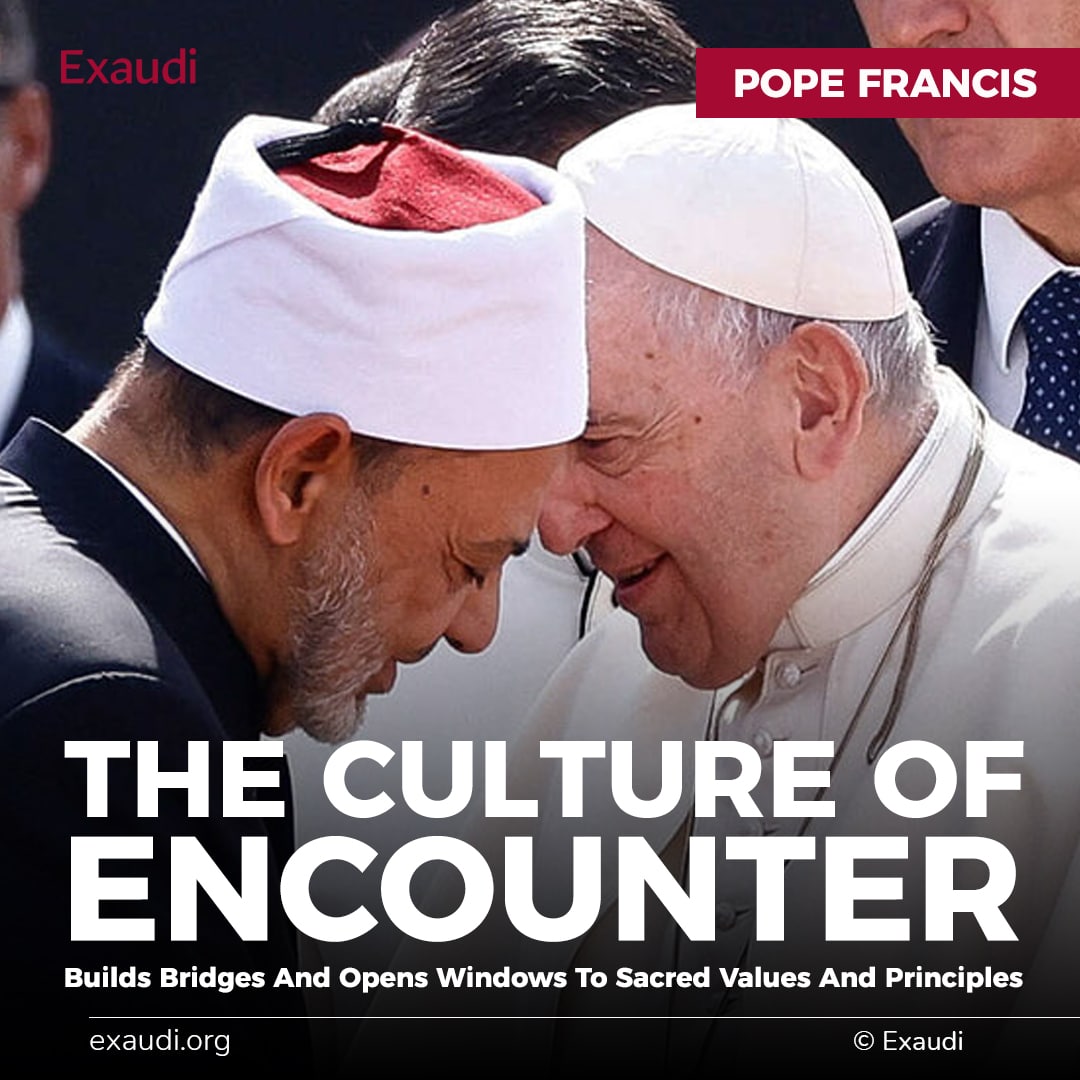
Related
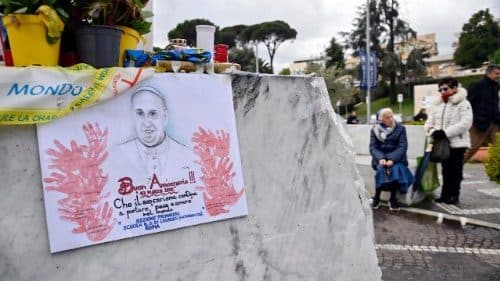
The Pope in Gemelli, condition stable
Exaudi Staff
13 March, 2025
1 min
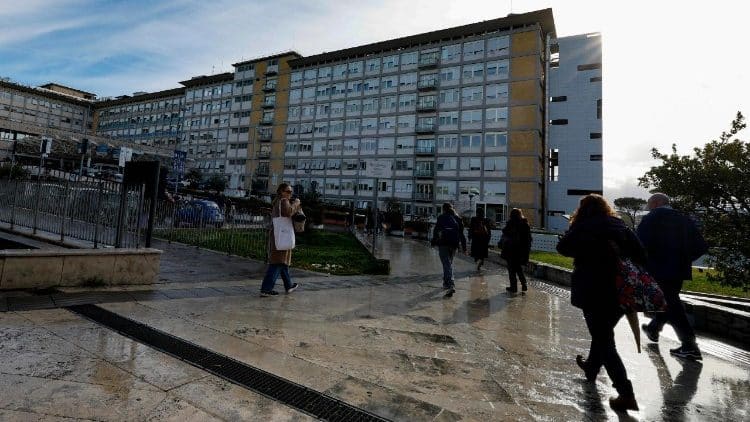
The Pope at Gemelli Hospital: A Peaceful Night
Exaudi Staff
13 March, 2025
2 min
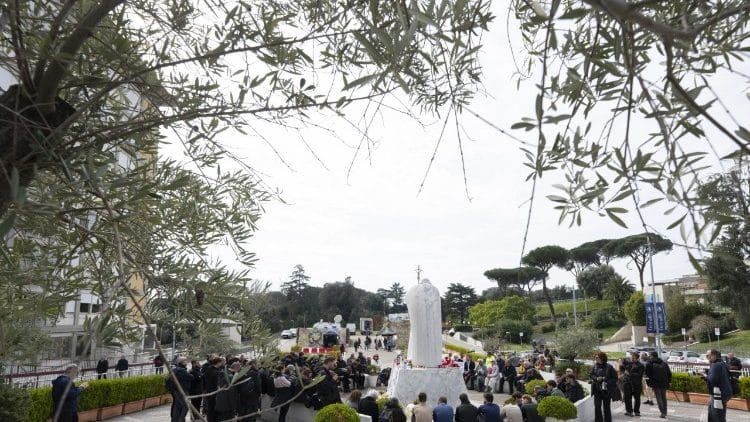
Pope at Gemelli Hospital: Peaceful Night
Exaudi Staff
12 March, 2025
1 min
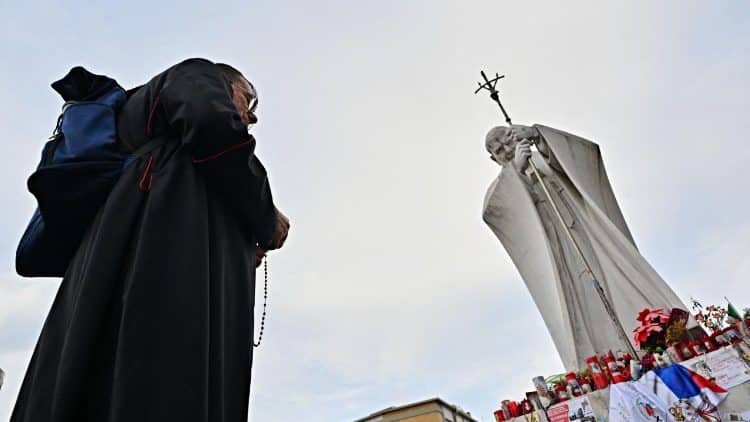
Pope at Gemelli Hospital: Slight Improvement
Exaudi Staff
11 March, 2025
1 min
 (EN)
(EN)
 (ES)
(ES)
 (IT)
(IT)

